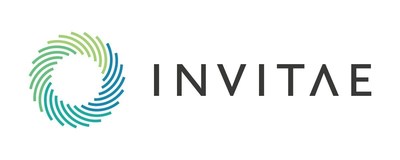Invitae Launches Update to Invitae Generation™: Clinical Variant Modeling Improves Variant Classification
- Invitae introduces Clinical Variant Modeling to enhance genetic testing interpretation.
- The method reduces uncertainty for patients and increases the actionability of genetic testing.
- Nearly 45,000 patients will receive updated reports with more definitive answers initially.
- Invitae is the only clinical lab using this evidence-based computational approach to reduce VUS.
- The initial launch focuses on genes associated with Lynch syndrome, estimating a 24% VUS reduction.
- The method enables faster turnaround times and reduced costs for genetic testing.
- None.
Insights
The introduction of Clinical Variant Modeling by Invitae is a significant advancement in the field of medical genetics. The reduction of variants of uncertain significance (VUS) is crucial as it directly impacts the clinical decision-making process. By providing more definitive genetic testing results, clinicians can make more informed treatment decisions, potentially improving patient outcomes. The ability to leverage a substantial database to refine variant classification demonstrates Invitae's commitment to integrating big data and artificial intelligence into healthcare.
From a research perspective, the methodology behind Clinical Variant Modeling is a leap forward in precision medicine. The use of machine learning to analyze patterns in massive datasets can lead to more accurate diagnoses and, consequently, to more personalized treatment plans. The reported 24% VUS reduction for Lynch syndrome genes alone could signify a substantial improvement in the management of hereditary colorectal cancer, which has implications for both patient survival rates and healthcare costs.
Furthermore, the scalability of this technology suggests that as more data are collected, the model's accuracy and utility will likely improve. This could set a new standard for genetic testing companies, pushing the industry towards more advanced, data-driven approaches.
Invitae's Clinical Variant Modeling presents notable economic implications for the healthcare industry. By increasing the actionability of genetic tests and reducing the turnaround time, there is potential for cost savings in both the diagnostic process and long-term patient care. For instance, more accurate genetic testing can decrease the need for additional tests and follow-ups, which can be financially burdensome for patients and the healthcare system.
The reduction in VUS also has the potential to lower the psychological and financial stress associated with uncertain diagnoses, which can lead to indirect economic benefits such as reduced absenteeism from work and lower insurance claims. Moreover, the efficiency gains from this innovation could encourage wider adoption of genetic testing, expanding the market for Invitae's services and potentially leading to increased revenue streams.
In the long term, the use of machine learning in genetic testing could become a key differentiator in the market, setting a benchmark for competitors and possibly affecting market shares. Invitae's pioneering approach may also trigger further investment in research and development within the sector, fostering innovation and potentially leading to more cost-effective healthcare solutions.
The release of Invitae's Clinical Variant Modeling is poised to have a ripple effect across the medical genetics market. The ability to offer definitive answers to patients with a history of genetic disorders can be a strong differentiator for Invitae in a competitive landscape. The initial focus on Lynch syndrome, a common hereditary cancer, indicates a strategic move to capture a significant segment of the market where there is a high demand for reliable genetic testing.
Market dynamics suggest that as healthcare providers increasingly rely on genetic information for diagnosis and treatment, companies that can provide accurate and efficient testing solutions will gain a competitive edge. Invitae's utilization of a vast patient database to inform its machine learning models could attract partnerships with research institutions and healthcare providers, further expanding its market presence.
Additionally, the public announcement of the technology's success in reducing VUS rates and the anticipation of its impact on patient care and healthcare provider confidence may positively influence investor sentiment. This could translate into increased stock market valuation for Invitae, provided that the company can effectively communicate the benefits and scalability of its new technology to the investment community.
– An Invitae-developed innovative approach to help reduce variants of uncertain significance –
Clinical Variant Modeling was developed by leveraging Invitae's vast database of information on more than 4 million patients, including over 2 million analyzed DNA variants, and more than 100 million words of clinical descriptions. With this initial launch, it is estimated that nearly 45,000 patients will receive updated reports with more definitive answers as a result of reclassifying previous uncertain results for 11 genetic disorders associated with 17 genes.
"Invitae is the only clinical lab utilizing this type of evidence-based and clinically validated computational approach to reducing VUS in hereditary disease genetic testing," said W. Michael Korn, M.D., chief medical officer at Invitae. "Our vast experience in variant interpretation science and repository of clinical and molecular data enables us to utilize artificial intelligence approaches to innovate in ways that further deliver on our commitment to helping patients."
The initial launch of Clinical Variant Modeling at Invitae specifically includes a model for genes associated with Lynch syndrome, the most common cause of hereditary colorectal cancer1. This modeling was developed from Invitae's database of more than 2 million patients for whom complete DNA sequence and copy number variant information has been generated across all known Lynch syndrome associated genes.
"We estimate that 18,000 patients who were tested at Invitae for Lynch syndrome genes will receive VUS reclassifications, resulting in a
"We anticipate that Invitae's unrelenting focus on developing evidence-based methods to reduce VUS will increase confidence among referring clinicians to use our genetic testing broadly and efficiently. As a result, more patients can benefit from using genomic information to inform their healthcare," said Dr. Korn.
About Invitae
Invitae (OTC: NVTA) is a leading medical genetics company trusted by millions of patients and their providers to deliver timely genetic information using digital technology. We aim to provide accurate and actionable answers to strengthen medical decision-making for individuals and their families. Invitae's genetics experts apply a rigorous approach to data and research, serving as the foundation of their mission to bring comprehensive genetic information into mainstream medicine to improve healthcare for billions of people.
To learn more, visit invitae.com and follow for updates on LinkedIn, X, Instagram, and Facebook @Invitae.
Safe Harbor Statement
This press release contains forward-looking statements within the meaning of the Private Securities Litigation Reform Act of 1995, including statements relating to the features and expected benefits of the company's products and services, including the estimated number of patients that will receive VUS reclassifications and the benefits related thereto. Forward-looking statements are subject to risks and uncertainties that could cause actual results to differ materially, and reported results should not be considered as an indication of future performance. These risks and uncertainties include, but are not limited to: risks and uncertainties regarding the company's ability to successfully consummate and complete a plan of reorganization under Chapter 11; the company's ability to continue operating in the ordinary course while the Chapter 11 cases are pending; potential adverse effects of the Chapter 11 cases on the company's business, financial condition, liquidity and results of operations; the company's ability to use rapidly changing genetic data to interpret test results accurately and consistently; risks associated with litigation; security breaches, loss of data and other disruptions; laws and regulations applicable to the company's business; and the other risks set forth in the company's filings with the Securities and Exchange Commission, including the risks set forth in the company's Quarterly Report on Form 10-Q for the quarter ended September 30, 2023. These forward-looking statements speak only as of the date hereof, and Invitae Corporation disclaims any obligation to update these forward-looking statements.
Contact:
Renee Kelley
pr@invitae.com
(628) 213-3283
1 Centers for Disease Control and Prevention (CDC),
![]() View original content to download multimedia:https://www.prnewswire.com/news-releases/invitae-launches-update-to-invitae-generation-clinical-variant-modeling-improves-variant-classification-302085747.html
View original content to download multimedia:https://www.prnewswire.com/news-releases/invitae-launches-update-to-invitae-generation-clinical-variant-modeling-improves-variant-classification-302085747.html
SOURCE Invitae Corporation








